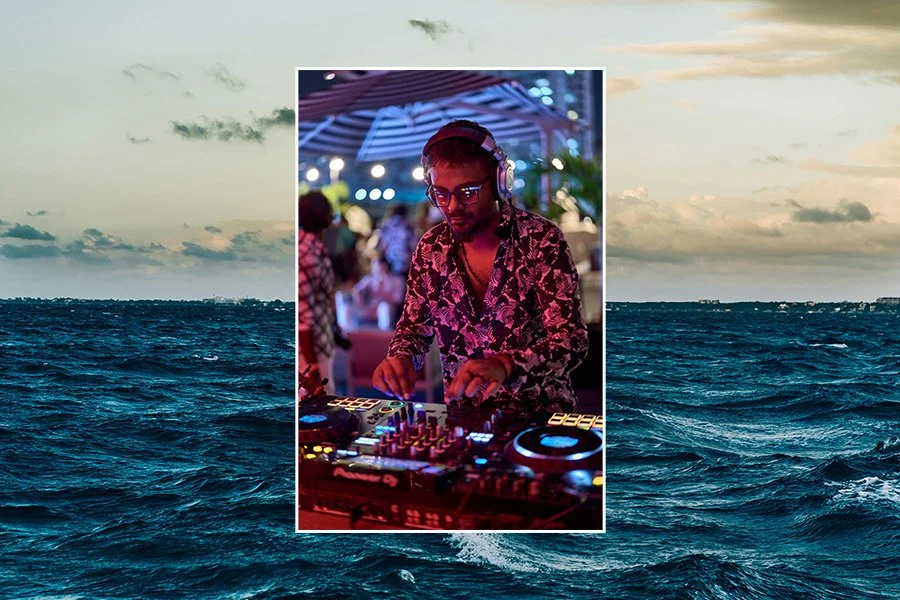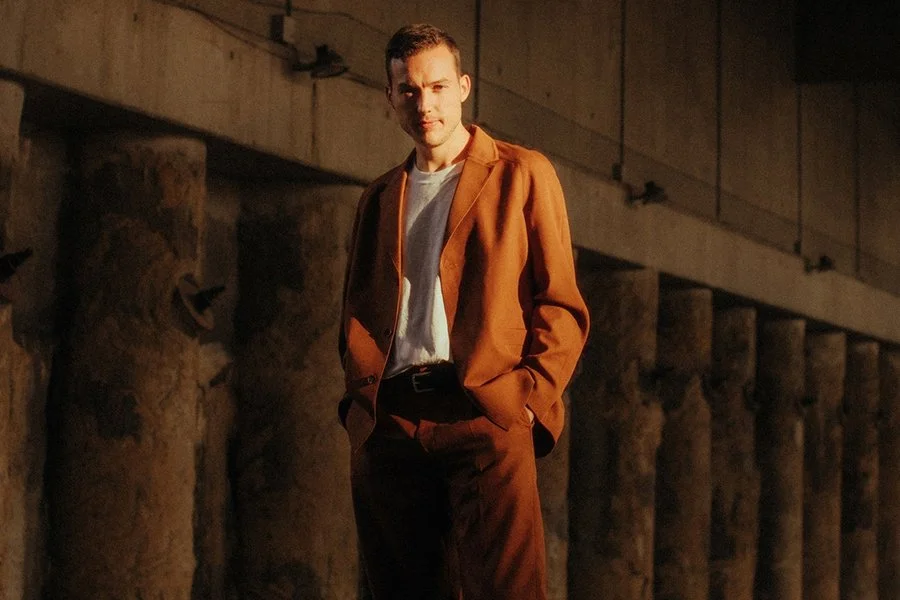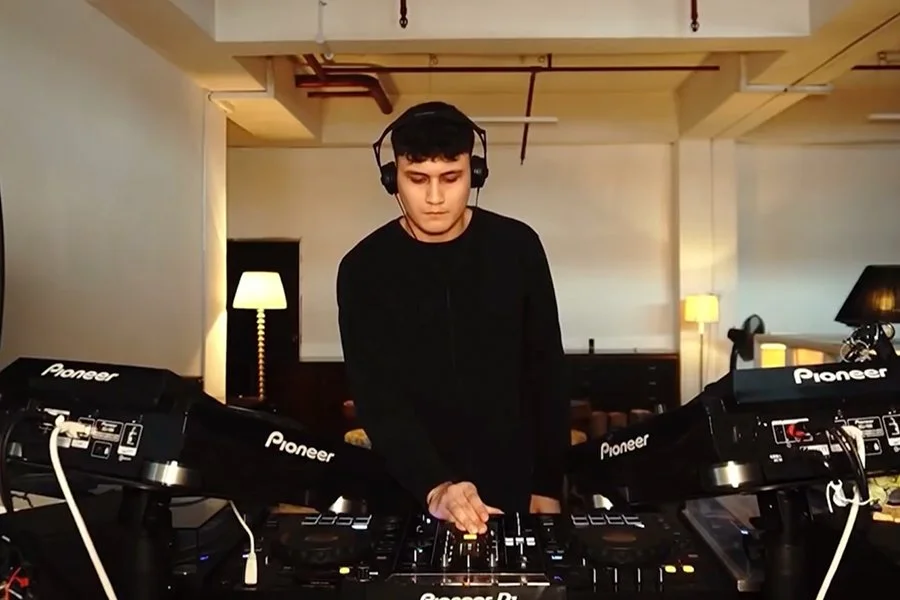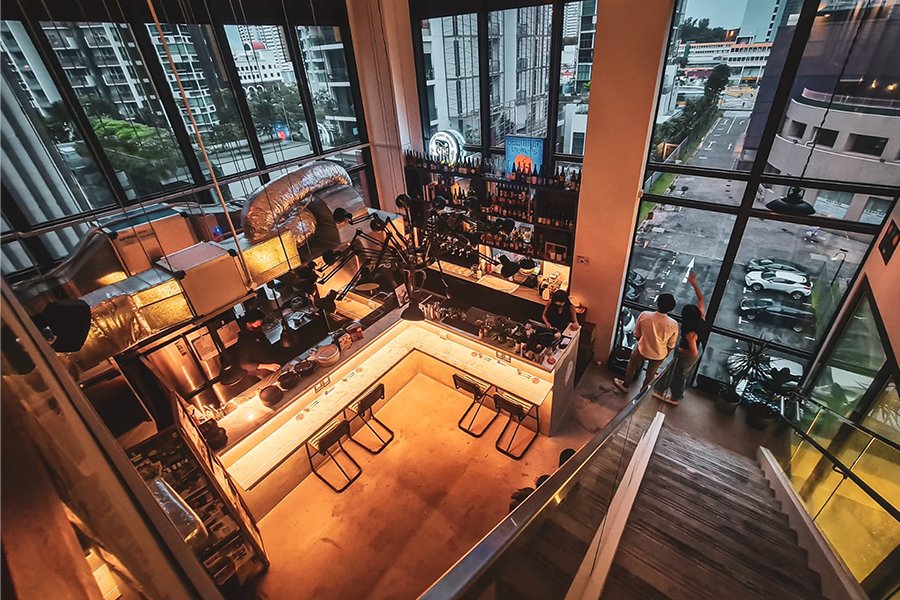A Dose Of deførmed: You Haven’t Encountered An Electronic Producer As Absurd As This
Buckle up for the bonkers style of deførmed (Credit: Courtesy of Syndicate)
Just when you think you’ve heard it all, out pops another divergent individual who messes around with the musical cauldron. Formulating a wicked brew of his own is deførmed, an electronic producer with a recipe that polarises in all directions. Digesting his repertoire is equivalent to munching on Bertie Bott’s Every Flavour Beans; you never know what wacky flavour you’re gonna sink your teeth into. The current madcap material of deførmed is aggressively schizophrenic with sidewinding detours and harsh drifts, straddling the line between barefaced ingenuity and chuckle-inducing campiness. Few producers out there can genuinely say they’re doing something new with a straight face, and in my view, deførmed takes the cake.
The breakout project of Abdul Hakiim, a classical pianist from the Singapore Malay Youth Orchestra, deførmed has barged through the scene with his latest album, LATE TO THE LOUDNESS WAR. Just like what its all-caps title insinuates, the five-track EP – released by Syndicate – is a beastly rampage that stomps on your brain with six-inch boots. Taking cues from Cold War tensions of the ’80s, deførmed has concocted an album that’s dubbed “Generation Z’s response to late-stage capitalism and the death of a postmodern world”. Up in arms, he fires tracks like “YOU DON’T NEED TO UNDERSTAND”, an inferno of black metal vocal screeches and spluttering drum & bass rhythms; “WHITE TSUNAMI”, a cesspool of industrial EBM beats with synth squelches and gnarly gibberish; and “BAS NO 172”, which trollingly morphs from turbo-charged anarchy into a tropical, reggae-hued interlude.
deførmed sports a sense of silliness in his works, just like his press pictures (Credit: Courtesy of Syndicate)
These boggling accoutrements that come and go might seem like a hysterical mess, but that’s the warped beauty in what deførmed does. Like a musical Frankenstein, he’s stitched together a manic sound that’s overblown, rambunctious, and completely bonkers. And honestly, when was the last time you’ve heard someone this wild in the local music scene?
To solve the puzzles of this baffling maestro, I interview the man of the hour to talk about his widespread inspirations and frenzied yet calculated processes. It’s time to get informed about deførmed, one of the strangest producers you’ll ever encounter.
“It boils down to a balance of being comfortable with what I do and what I hear.” (Credit: Courtesy of Syndicate)
Hi deførmed. Your sound might just be the most original thing I’ve heard all year. When and how did you start creating such manic concoctions?
Hello. It was back in 2019, when I was tired of my previous musical style and started looking for something unfamiliar yet comfortable. I started experimenting with all kinds of sounds, workflows, ideologies, and concepts to see which suited me as an individual. I realise it boils down to a balance of being comfortable with what I do and what I hear.
Do you have any inspirations or industry figures out there who shape your musical blueprint?
Aphex Twin, Machine Girl, Reizoko Cj, clown core, toiret status, batta, Otoboke Beaver, Japanese anime music, and video game music (Xenoblade Chronicles, Splatoon, Pokemon Mystery Dungeon, etc).
The artwork for LATE TO THE LOUDNESS WAR (Artwork by Race Krehel and Kiat)
LATE TO THE LOUDNESS WAR is truly a bizarre masterpiece, a glorious mess perfect for the turmoil of the past year. Can you tell us more about your story behind the album?
The COVID situation made everyone stressed out, and in turn, the environment and aura in almost every location became more stressed. This made people more stressed too, and this created sort of a positive feedback loop of stress. I remember feeling low-spirited during the time I wrote the songs. Writing music is sort of a stress relief, so naturally, I would think these songs existed to combat the stress that I was experiencing.
“BAS NO 172” is about the hypothetical environment visualised by my worries before the Circuit Breaker was implemented. “YOU DON’T NEED TO UNDERSTAND” and “WHITE TSUNAMI“ are products of the descent into stress and near-madness. “GIBBERISH BLABBERISH RUBBISH” and “DELICIOUS EXOTIC LASAGNA” are the exhaustion and cooldown from the stress, while still having the lingering sense of discomfort and dissatisfaction.
“The key to getting a fresh sound is the combination of experimentation and your own individuality.” (Credit: Courtesy of Syndicate)
The album apparently has socio-political themes in it. Have you always felt an obligation to insert messages into your music?
No obligations. I guess I subconsciously happen to write about things I feel strongly about. The only song which had a message I wanted to bring across was “YOU DON’T NEED TO UNDERSTAND”, where I wanted to let everybody know that you don’t need an immense understanding of a certain artform to enjoy what it is. It can just be with you and you are allowed to enjoy its presence. I was also partially angry with myself for feeling the need to always understand everything, so I guess the song was for myself too, haha.
Every track is almost like a medley of madness, with surprises that smack you like a ton of bricks. How do you even put a song together?
Usually, I start with the percussion. After that, the ‘melodic’ elements. And almost always, the vocals and the melodies come last. I like a saturated song with a strong rhythmic foundation. I like to lay out the foundation in a day or two, and if there are vocals, I reserve a separate day for vocal recording to conserve energy. The rest of the mixing is done on another day.
From the sharp distortion on your vocals to the overblown punches of the percussions, there’s a clear industrial edge to your creations. Can you tell us about some of the production tricks you apply to forge this effect?
I like to very heavily compress my vocals; it can go up to a 15:1 compression ratio. Honestly, that's the product of being lazy to do volume automation on the vocals, but I realise it adds an ‘in-your-face’ punchiness to the vocals. Generous amounts of reverb afterwards helps with compensating the dynamic loss in the compression stage. I also like to layer the vocals with the same vocal take but pitch-shifted two semitones down, to give a sort of ‘monster’ effect.
The bass takes influence from my pre-deførmed heavy bass music style. I enjoy the sounds that come from genres like dubstep or neuro. I like to synthesise basses using Logic Pro’s ES1 or Massive. I usually layer my percussion using my PO-32 [a Pocket Operator] and an amen break loop. The PO-32 has a very wonky and punchy sound, and the amen breaks add the edge. On top of that, sometimes I add a CamelCrusher distortion plug-in to top it off. After that, I like to slice it up and arrange them in a glitchy kind of manner.
The key to getting a fresh sound is the combination of experimentation and your own individuality.
“Most of [my vocals] tends to be gibberish and garbage. But that's how I like it.” (Credit: Courtesy of Syndicate)
What influences the wild and animated vocal anecdotes on your tracks? If I didn’t know any better, I’d have thought you were previously a hardcore vocalist or rapper.
Shouting and screaming is one way I relieve stress, so I find tremendous amounts of joy doing just that. Since there is barely any situation where shouting and screaming is considered socially acceptable, I do it in my music. In terms of the lyrical content, most of the time I come up with the lyrics on the go during production. Sometimes it doesn't have to make sense, it just has to sound pleasing to the ear. As a result, most of it tends to be gibberish and garbage. But that's how I like it. I actually have little to no experience in being a vocalist before deførmed, so it is quite a refreshing experience, and I intend to bring it further.
Beneath the unrestrained hysteria of your sound lies your classical background with the Singapore Malay Youth Orchestra. Does that foundation somehow influence the way you approach your music?
Consciously, I like to keep it separate. However, I do believe that I subconsciously apply anything I learnt from anywhere (which includes the Singapore Malay Youth Orchestra) into my music. A cheesy example can be heard in “GIBBERISH BLABBERISH RUBBISH”, where there is a short Asli fusion kind of section in the middle. I included the Asli style because I thought it sounded nice, and I did learn the Asli style from the Singapore Malay Youth Orchestra.
Another side project of yours is arranging music for events like the recent Gala Laga festival. What other activities have you been involved with outside of deførmed?
I have been with the Singapore Malay Youth Orchestra since 2017, and started arranging songs in 2018. Other than that, I was a pianist in SCDF’s Music and Performing Arts Club during my time in National Service, also from 2018.
You had a few releases prior to LATE TO THE LOUDNESS WAR. How do you feel you’ve developed as a musician from then to now?
There is definitely a high learning curve, since this style of music is relatively new to me. I'm always finding new techniques to develop that edgy yet groovy sound, and each technique produces different results, while still being relevant to the style. There is still a lot to learn and innovate.
You’ve caught the attention of Syndicate with your latest EP. How does it feel to get that label support?
It feels amazing. Finally, after seven years of making music, I find that there are people who like and would support my music. It feels like all the perseverance has paid off.
“There is still a lot to learn and innovate.” (Credit: Courtesy of Syndicate)
To end off, you’re genuinely a radical in the scene, one who’s pushing its boundaries with an originality that’s much needed. Would you say deførmed is an identity that represents your truest artistic self?
deførmed is only one outlet. I put a lot of my expression in deførmed. Although it isn't all of my expression, I plan to broaden the horizon by making all kinds of music I’m capable of with deførmed.
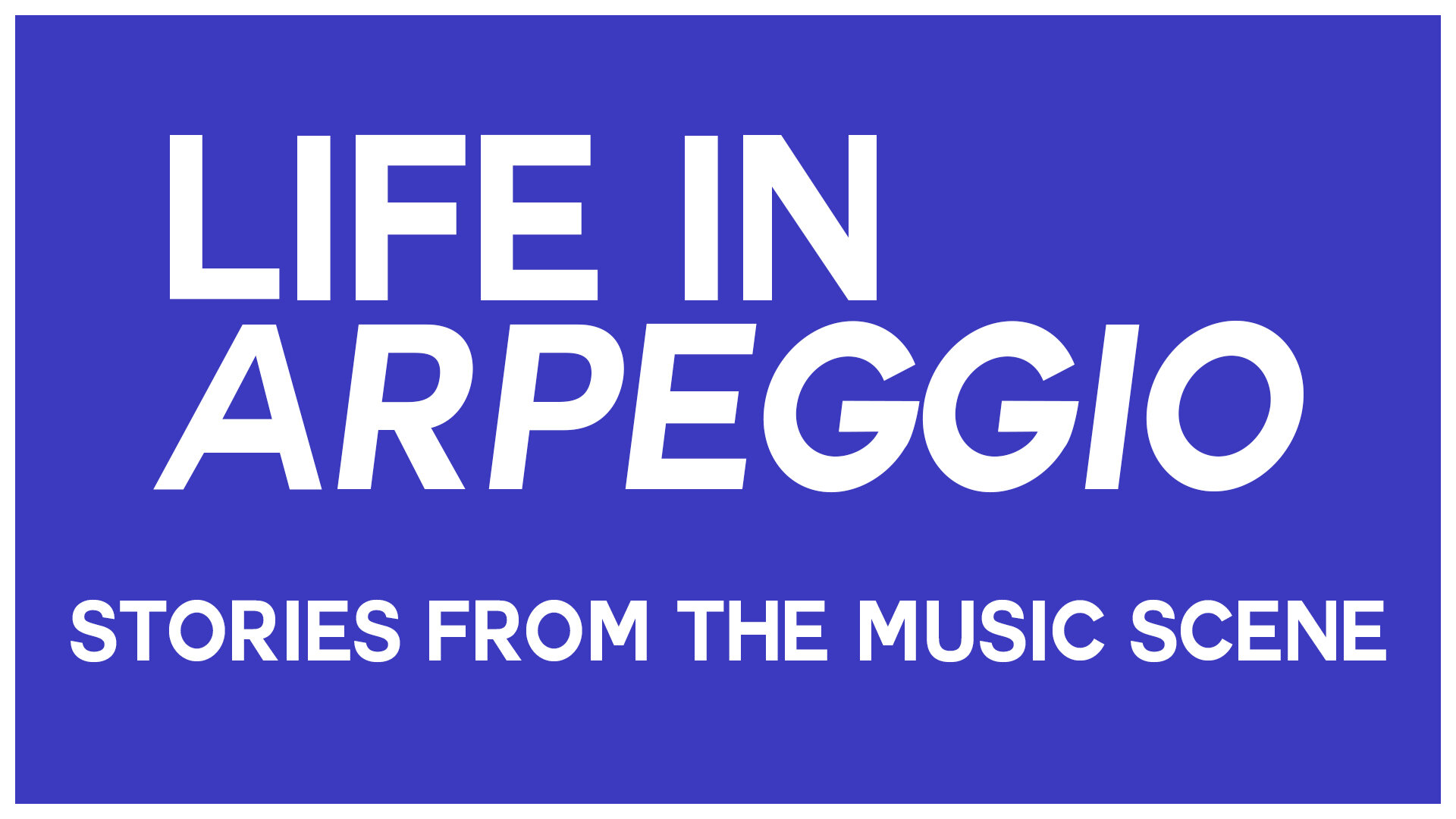





![“Most of [my vocals] tends to be gibberish and garbage. But that's how I like it.” (Credit: Courtesy of Syndicate)](https://images.squarespace-cdn.com/content/v1/5bcc4044348cd95e1711b02c/1610542484740-BVD142SO7BJZJ299C42L/life-in-arpeggio-deformed-electronic-local-producers-singapore-06.jpg)


